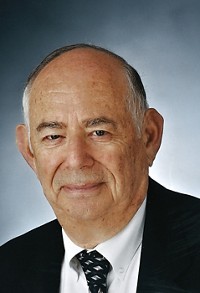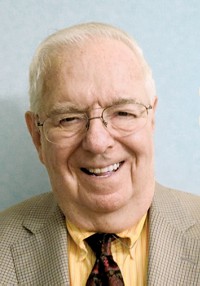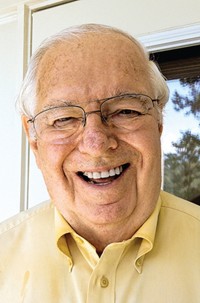Advertisement
Grab your lab coat. Let's get started
Welcome!
Welcome!
Create an account below to get 6 C&EN articles per month, receive newsletters and more - all free.
It seems this is your first time logging in online. Please enter the following information to continue.
As an ACS member you automatically get access to this site. All we need is few more details to create your reading experience.
Not you? Sign in with a different account.
Not you? Sign in with a different account.
ERROR 1
ERROR 1
ERROR 2
ERROR 2
ERROR 2
ERROR 2
ERROR 2
Password and Confirm password must match.
If you have an ACS member number, please enter it here so we can link this account to your membership. (optional)
ERROR 2
ACS values your privacy. By submitting your information, you are gaining access to C&EN and subscribing to our weekly newsletter. We use the information you provide to make your reading experience better, and we will never sell your data to third party members.
People
Founding Father
Neil Gordon's Passion For Uniting Scientists Got An Early Start
July 17, 2006
| A version of this story appeared in
Volume 84, Issue 29
Even as a teenager, Neil Elbridge Gordon had a knack for bringing scientists together. More than a quarter-century before he launched what would become known as the Gordon Research Conferences, he cut his scientific organizing teeth putting together a science club as a student at Homer High School in upstate New York. This early success was a taste of things to come from Gordon, a passionate promoter of chemistry and chemical education.
Born in 1886, Gordon earned a bachelor's degree in philosophy and a master's degree in mathematics from Syracuse University before completing his Ph.D. in chemistry at Johns Hopkins University in 1917.
While attending his first American Chemical Society meeting in the spring of 1921, Gordon, then a young faculty member at Maryland State Agricultural College in College Park, was inspired by a talk on undergraduate research. By the time the leaves had turned that year, he had spearheaded the formation of what would later become the ACS Division of Chemical Education. To disseminate the division's efforts, Gordon launched the Journal of Chemical Education in 1924. Soon after, he was recruited back to Johns Hopkins to take up a newly endowed chair in chemical education.
It was during this time that Gordon turned his considerable organizational skills to bear on scientific conferences. He reinvented an established departmental summer conference series, moving it to Gibson Island in nearby Chesapeake Bay. The new meetings proved a huge success and marked the birth of what are now known as the Gordon Research Conferences. Gordon continued to build and champion the conferences for another 16 years before turning his remarkable fund-raising and managerial skills back to chemical education, among other things creating Wayne State University's Ph.D. program in chemistry and assembling the noted Kresge-Hooker scientific library. He died in 1949.
Reflecting on his colleague's many achievements, chemist Otto Reinmuth later wrote that "whatever aspirations toward scientific scholarship [Gordon] may once have entertained, he early recognized his own peculiar abilities as an organizer and promoter and subordinated all else to the furtherance of projects which he felt would advance the cause of chemistry and chemical education."
MORE ON THIS STORY
Founding Father
Neil Gordon's Passion For Uniting Scientists Got An Early Start
Still Blazing Trails At 75
Gordon Research Conferences celebrate a rich history of nurturing the frontiers of science






Join the conversation
Contact the reporter
Submit a Letter to the Editor for publication
Engage with us on Twitter